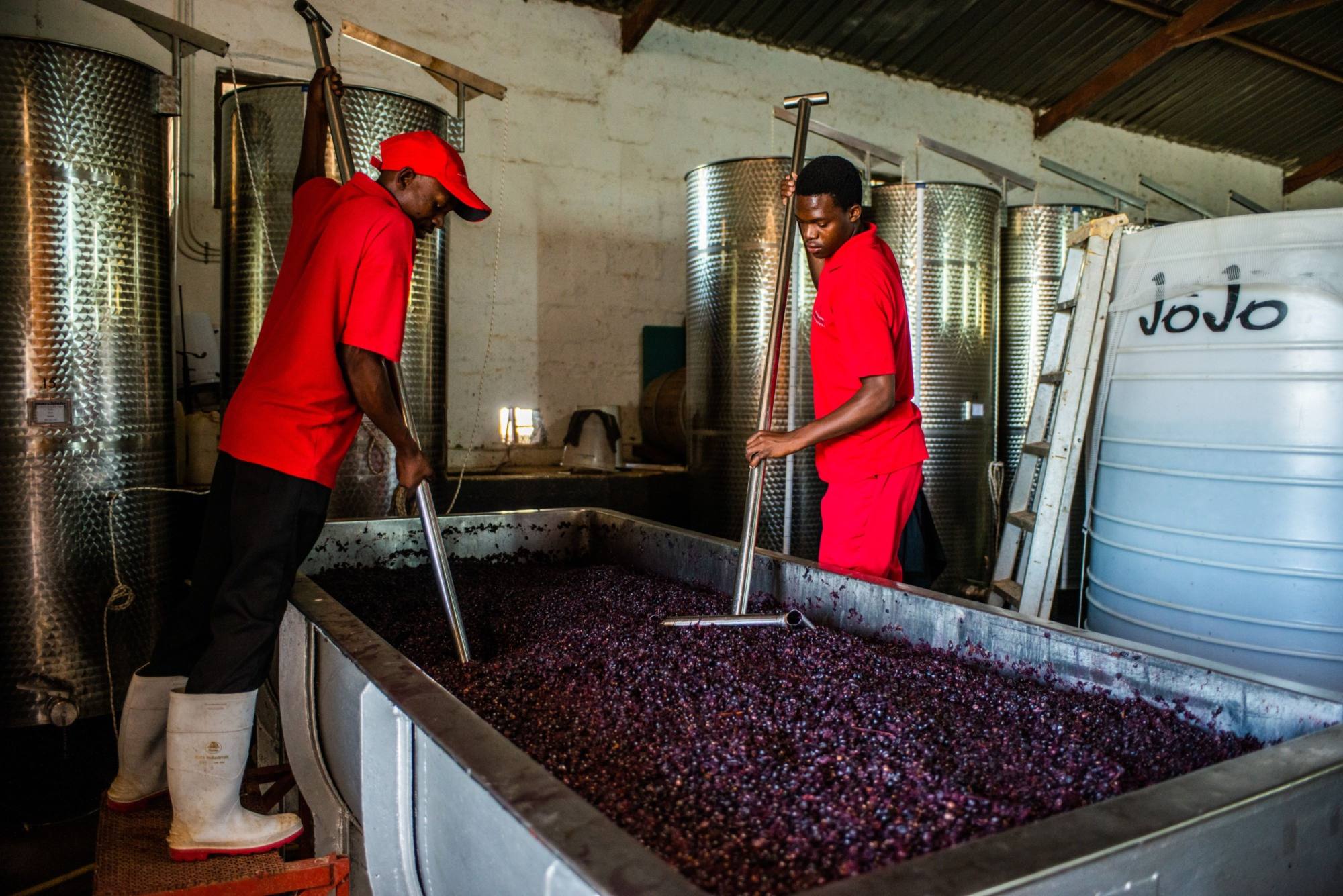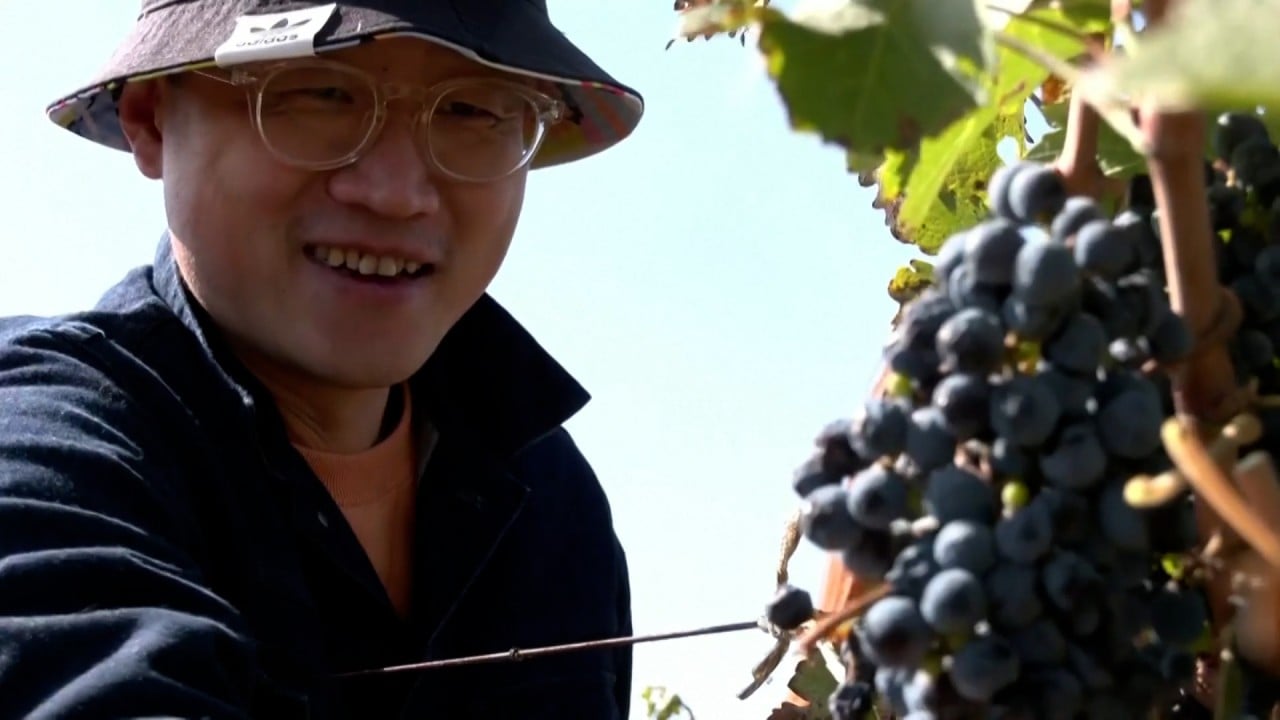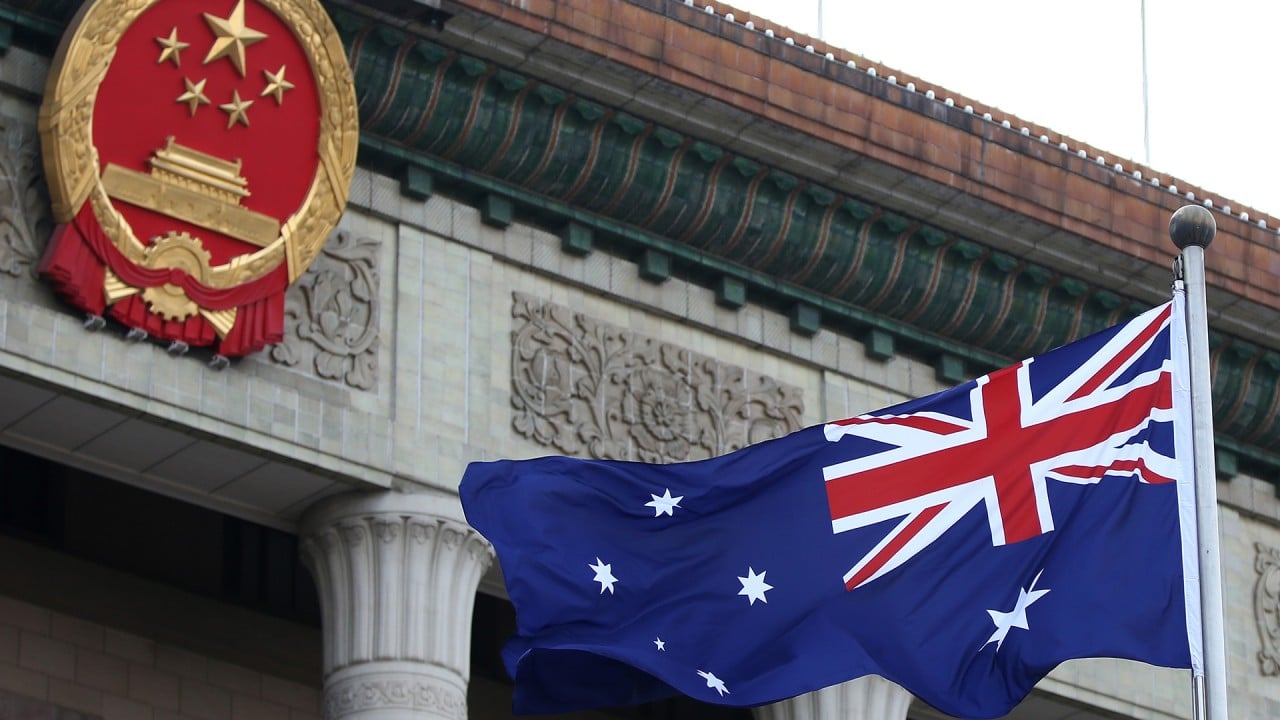
China gets a taste for South African wine as tariffs take Australian varieties off the table
- South African vineyards have started tailoring their product to the Chinese market, with exports soaring in 2021
- The increase came as Beijing hit Australian wines with hefty tariffs
Wu Peng, director general of the foreign ministry’s African affairs department, said wine exports from South Africa to China increased by 193 per cent by volume in 2021 “and wineries began to make wines specifically tailored to Chinese tastes”.
“I am so happy to see these new possibilities brought to the Chinese table, and the vast prospect of cooperation between us,” Wu tweeted early this month.
In value terms, exports grew by 125 per cent, making South Africa the eighth biggest wine exporter to China, according to the China Association for Imports and Exports of Wine and Spirits.
The increase comes in the aftermath of Beijing’s decision in 2020 to impose tariffs of up to 212 per cent on wines from Australia, at the time its biggest wine supplier by far.
Beijing and Canberra became mired in a trade war that year, with China accusing Australian winemakers of “dumping” bottles of wine at low prices to crowd out local producers.
But Australian wine traders believe the tariffs were prompted by political tensions. The two countries had only the previous year signed a free-trade agreement allowing Australian wines into China tariff-free.
Those tensions surfaced in April 2020 when Canberra called for an international investigation into the origins of the coronavirus.
Soon after, Australian exporters of beef, coal, barley, timber and wine started facing difficulties in accessing the Chinese market.
The trade war could cost the Australian wine industry about US$1.2 billion annually, with wines from Chile, Italy, France, and Spain filling the gap.

Rudi Delport, sales manager for China at Axis Group International, which represents South African wine and spirits producer KWV, said South African wine had quietly been building a good reputation in China for the past 10 years.
Delport said a lot of hard work was done by industry body Wines of South Africa, individual wineries that set up operations in China, and by distributors that had been working with South African wine for years.
“This meant that the South African category was an easy one for importers to add once the need to diversify their portfolios became apparent following the tariffs imposed on Australian wine,” he said.
He said the trade war with Australia expedited the purchase of South African wine by distributors who previously only showed a passing interest in South African wines.
“As South African wine listings flourished on retail shelves, quality online stores and restaurant menus, it created further energy and awareness in the category. South African wine became much more accessible, creating opportunities for casual consumers to buy bottles previously only available in more specialised channels,” Delport said.
South African wine exporters raise a glass to new China opportunities
Ian Ford, founding partner and CEO of Nimbility, a market research and consultancy firm based in Shanghai, said almost all importers in China were looking for substitutes for Australian wine in their portfolio, and for many of them South Africa was a natural fit.
South Africa was also a category that many of them had not played in much before that, Ford said.
But Australian players had found a way to beat the tariff problem.
Ford said a few major Australian producers were now bottling their main commercial brands with South African wines instead of Australian wines.
“It is very possible that the volumes of these brands, which are contributing to South Africa’s big numbers, will revert to Australian wine once the tariffs have been removed,” Ford said.
He said Wines of South Africa was very active in seizing the opportunity to gain share off of Australia and did a good job lobbying importers to take on South African wines.
“Major producers such as Journey’s End have adopted an ambitious and aggressive commercial posture towards China, earning them strong placements at both the importer and retail level,” he said.
He said there was a much bigger question mark over 2022 for all producers due to the renewed wave of aggressive Covid-19 lockdowns in China.
“South Africa, though, should continue to build on the bedrock success of 2021, and as this current storm passes should be set to continue a strong trajectory of growth,” Ford said.
“It will be important though to keep an eye on those Australian brands that are temporarily bottling South African wines, and whether or not they will revert to Australian when the time comes.”
Before China slapped tariffs on Australian wine, Australia was responsible for more than 40 per cent of all wine exported to China. It slipped to under 4 per cent last year over the trade war.
Tony Battaglene, chief executive of the national wine producers association Australian Grape & Wine, said the closure of the China market had a significant impact on the Australian grape and wine sector.
“We are rapidly diversifying our markets, but grape prices for red grapes in 2022 have fallen,” Battaglene said.
Fortunately, he said, “we are seeing many other markets improve demand [but] it will take a few years before we trade through the issue”.
“Hopefully, we will be back in the China market in the next few years as the demand for Australian wine is still strong,” Battaglene said.



